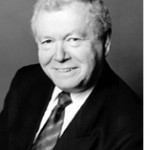By Rabbi Dow Marmur

JERUSALEM–There’s more to religious divisions in Israel than those between Orthodoxy and Liberal (Conservative and Reform) Judaism. There’re also many opposing forces within Orthodoxy: Ashkenazim and Sephardim; Hasidim and their opponents; Zionists and anti-Zionists. Yet they’re together in the Knesset and currently all in the government.
In recent years, however, yet another division has emerged within the Orthodox world in Israel. It has the potential of transforming Jewish life in the country.
This new force advocates a more enlightened, perhaps more lenient approach to Jewish law. Its exponents include well known and learned Orthodox rabbis. They call themselves Tzohar (“skylight”) and see themselves as bringing light to different worlds within Judaism in contrast to the closed world of the rigid, established Chief Rabbinate (two chief rabbis, one Sephardi and one Ashkenazi; both current incumbents sons of former chief rabbis) that epitomizes uncompromising severity and imposes punishing rules on hapless individuals, e.g., those seeking conversion to Judaism or divorce or a kashrut license for a catering establishment.
Though the Tzohar rabbis are staunchly Orthodox and would have nothing to do with their Reform and Conservative counterparts, establishment Orthodoxy is fighting them tooth and nail – precisely because their challenge is within Orthodox Judaism.
Tzohar rabbis were recently in the news when some of them established an alternative rabbinic court to deal with conversions to Judaism. There’re still some 300,000 Israelis, mainly immigrants from the former Soviet Union and their descendants, who don’t have another religion but whom the Chief Rabbinate doesn’t recognize as Jews and making it very difficult for them to formally embrace Judaism.
The Tzohar rabbis set out to help them. They’re, of course, totally within their rights as exponents of Jewish law. Jewish tradition doesn’t know of chief rabbis; the institution was created during the British mandate (on the model of the “chief rabbi” in Britain) and can only claim political clout, not superior Jewish legal authority.
The most recent effort of the Tzohar rabbis has been to put themselves forward as candidates for the posts of dayanim, judges in rabbinic courts that deal with matters of Jewish law. When the unwanted candidates emerged, the usual exponents of the Orthodox establishment went into a state of panic and pulled out all stops to prevent the “rebels” to be selected. The Jerusalem Post reports that the secular government minister who was in charge of the appointments committee and the prime minister were told by their cabinet colleague Arieh Deri, the leader of the Sephardi Shas political party, that if the “rebels” are appointed, he and his ultra-Orthodox colleagues will break up the government coalition. Lo and behold: the “rebels” were not chosen!
Shenanigans of this kind aren’t new to Israeli politics in general and Orthodox politics in particular. Nevertheless, it’s most likely that sooner or later the Tzohar rabbis will break the monopoly of the Chief Rabbinate. This won’t make it necessarily easier for Reform Jews, but that alternative Orthodox actions will come about is good news for all Israelis who believe in religious pluralism.
The time has come for Israel that claims to be a modern democratic state to free itself from the religious fetters of the Middle Ages and grow up.
*
Rabbi Marmur is spiritual leader emeritus of Holy Blossom Temple in Toronto. Now residing in Israel, he may be contacted via dow.marmur@sdjewishworld.com